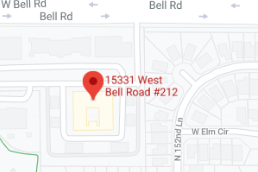
When parents go through a divorce in Glendale, one of the most heated issues may be legal custody of their children. Parents often are unaware of their rights to make decisions about their children’s welfare and to spend time with their children. If you face this situation, you should seek help from an experienced child custody attorney in Glendale, AZ who can answer your questions and help you to understand your rights under Arizona law.
The knowledgeable and compassionate child custody lawyers at Mushkatel, Gobbato, & Kile, P.L.L.C. are here to provide the qualified legal representation that you need. We know how emotionally difficult it can be to fight for your rights as a parent. We are here to help you to seek an arrangement that works best for you and your children. Our team has extensive experience with helping parents in Glendale and across Arizona preserve their right to raise their children. Call or reach us online today to discuss your situation in a confidential consultation.
How To Reach an Agreement Between Parents on Child Custody?
The commonly recognized terms “custody” and “visitation” are no longer used by the state of Arizona when it comes to children and their parents. Instead, the state uses the terms “legal decision-making” and “parenting time” to define how children are parented and how parents share their time with the children. As you and the other parent work through legal custody issues, it is important to know these terms and how they will apply to your situation.
Legal decision-making authority refers to which parent makes important decisions about a child’s welfare, health care, education, and religion. Under Arizona law, both parents have joint legal decision-making authority unless circumstances warrant giving sole authority to one parent.
Parenting time refers to how much time each parent spends with a child. In Arizona, most divorced parents enjoy equal parenting time with their children. However, in some situations, circumstances can exist that could limit a parent’s time with their children or require them to live primarily with one parent. Contact a Glendale child custody lawyer today.
What is the ‘Best Interests’ Standard in Child Custody in Arizona?
Arizona looks for a parenting arrangement that will be in the best interests of the child.
A court will examine several different factors when it determines whether an arrangement meets this child custody standard, including:
 The parent-child relationship;
The parent-child relationship;- The child’s interactions with parents (and other relatives);
- The child’s home environment, school, and community (and any adjustments that the child will need to make);
- The child’s wishes (if the child is old enough);
- The mental and physical condition of all parties involved;
- A parent’s willingness to maintain a cordial relationship with the other parent (except in situations of abuse or assault);
- Conduct of the parents toward the court;
- Evidence of domestic violence, abuse, or child abuse;
- Parental behavior, especially negative behavior like coercion, pressure, or alienation;
- Compliance with a joint parenting education requirement (mandatory);
- Evidence of false abuse reports by either parent.
How Do Parenting Plans Work in Arizona?
Parents who are considering a divorce in Glendale should try to reach a mutually agreed upon parenting plan. Parenting plans help to provide children and parents with predictability and consistency and can help to prevent future conflicts. Under Arizona law, when a child’s parents cannot agree on a plan, each parent must submit a proposed parenting plan, and a court may ultimately decide on legal decision-making authority and/or parenting time.
Parenting plans for child custody must include at least the following:
- A designation of the legal decision-making as joint or sole;
- Each parent’s rights and responsibilities for the personal care of the child and for decisions in areas such as education, health care, and religious training;
- A practical schedule of parenting time for the child, including holidays and school vacations;
- A procedure for the exchange of the child, including location and responsibility for transportation;
- A procedure by which proposed changes, relocation of where a child resides with either parent, disputes, and alleged breaches can be mediated or resolved;
- A procedure for periodic review of the plan’s terms by the parents;
- A procedure for communicating with each other about the child;
- A statement that each party understands and will abide by an Arizona law that requires a parent or custodian to immediately notify the other parent or custodian if they know that a convicted or registered sex offender or a person who has been convicted of a dangerous crime against children may have access to the child.
What Are the Custody and Visitation Rights of Other Relatives in Arizona?
Grandparents or other individuals who can demonstrate the existence of a beneficial relationship with children may be able to acquire visitation and/or legal decision-making rights concerning a child. Under Arizona law, a person other than a legal parent can petition the court for legal decision-making authority or placement of the child.
A court must summarily deny the petition unless it finds that the petitioner’s initial pleading establishes:
 The child has treated the person filing the petition as a parent and formed a meaningful relationship with the person for a substantial period of time;
The child has treated the person filing the petition as a parent and formed a meaningful relationship with the person for a substantial period of time;- It would be significantly detrimental to the child to remain or be placed in the care of a parent who wishes to acquire or keep legal decision-making authority;
- A court has not entered or approved an order concerning legal decision-making or parenting time within one year before the person filed the petition unless there is reason to believe the child’s present environment may seriously endanger the child’s physical, mental, moral, or emotional health;
- Either one of the legal parents is deceased, the child’s legal parents are not married to each other at the time the petition is filed, or a proceeding for dissolution of marriage or for legal separation of the legal parents is pending at the time the petition is filed.
Under Arizona law, a person other than a legal parent can petition the court for visitation with a child, and the court can grant visitation rights while the child is a minor if the court finds that visitation is in the child’s best interests, and any of the following is true:
- One of the legal parents is deceased or has been missing for at least three months;
- The child was born out of wedlock, and the child’s legal parents were not married to each other at the time the petition is filed;
- The marriage of the parents of the child has been dissolved for at least three months (if a grandparent or great-grandparent is seeking visitation).
Helpful Pages:
- Glendale divorce lawyer
- Glendale family law lawyer
- Glendale probate lawyer
- Glendale real estate lawyer
Contact a Child Custody Attorney in Glendale, AZ Today
A Glendale child custody lawyer of Mushkatel, Gobbato, & Kile, P.L.L.C. knows how important spending time with your child is to you. We will work closely with you to develop a parenting plan that serves the best interests of your children and achieves your goals as a parent. If it is not possible to reach an agreement with the other parent, we will present your side in court. If you have an established parenting plan that needs to be modified, our experienced attorneys can assist with that as well.
We know that you want to have your voice heard when it comes to decisions about your child, and you want your time with the child to be respected. We are here to help you. Contact us today to set up a consultation about your case.













